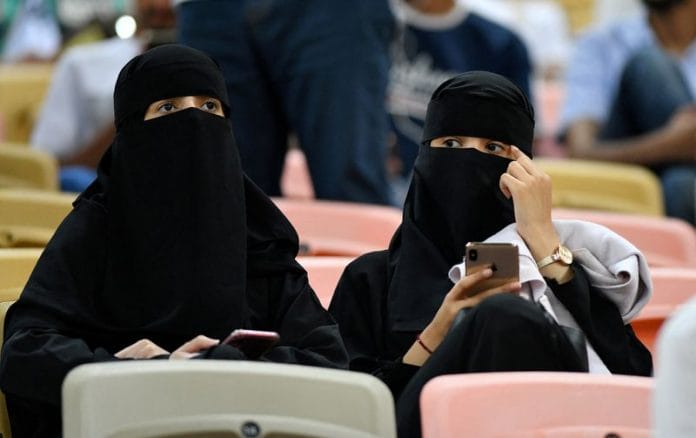By Christian Radnedge
LONDON (Reuters) – Saudi Arabia women may be a long way away from qualifying for the women’s World Cup, but a more realistic aim would be to host the tournament in the future, the country’s technical director of the women’s game Monika Staab told Reuters.
Staab, who had stints as a player in her native Germany, France and England, was the first coach of the newly set up Saudi Arabia women’s football team in 2021 before moving to her current role in February.
The team played their first games in February 2022 and Saudi Arabia Football Federation (SAFF) board member Lamia bin Bahian stated the goal was for the side to be a participant at the World Cup within 10 years.
Staab, 64, said that may take longer but that a quicker route could be to play in the tournament as the host nation.
“I told them that something takes time. It’s like a little baby, it needs to stand up, it needs to learn how to walk… So we’re talking about at least 10 years development and they’re going at a very fast speed,” the German told Reuters at the International Sports Convention in London.
“I’m not sure now anymore if it will really happen in 10 years, I told them 2035 could be a realistic aim, because we started in 2021… I think that for me it is more realistic to maybe host the Women’s World Cup in Saudi Arabia.”
The hosts for the women’s World Cup usually get a short amount of time to prepare, with the 2027 host nation set to be appointed by FIFA in May next year.
Saudi Arabia are already bidding to host the 2026 Women’s Asian Cup which is due to be decided this month.
It is part of a wider strategy of the Gulf nation to host huge sporting events. Saudi Arabia will host the men’s Club World Cup later this year, having already hosted the men’s Spanish Super Cup and events in Formula One and boxing.
EQUALITY ISSUES
A bid for the men’s World Cup in 2030 is expected to come through. However, critics have accused Saudi Arabia of using sport to cover up its poor record on human rights and equality issues in a country where men still retain a tight grip on power.
That was part of the backlash to a possible Visit Saudi sponsorship of this year’s women’s World Cup, to be held in Australia and New Zealand from July 20-Aug. 20. World soccer governing body FIFA announced in March that the Saudi tourism board would not sponsor the tournament.
Staab, who has worked as a coach in Bahrain and Qatar, said she was not best placed to comment on the sponsorship issue but that it was important for FIFA to look at ways to help women’s football in countries that were early in their development.
“I’ve been in 88 countries in the last 15 years to develop women’s football, especially in Africa where the financial resources are very, very, very weak,” she said.
“No fields are available, no equipment. So FIFA have been doing great jobs in India helping women football to grow and especially in countries where the money is not so easy to access for women’s football.
“So I think it’s always good when FIFA is having the opportunity to help this development countries to get better and to rich one day like the USA, Germany or England.”
It would help, she added, if more women were in leadership positions. Currently, it is understood nine of FIFA’s 211 member associations are led by women.
“It’s important to get more women in this football male dominated world. Because we have a different view, we have different ideas, which we contribute to have the game for everyone. And that’s what we stand for. I think all men should also be thinking in that way,” Staab said.
(Reporting by Christian Radnedge)
Disclaimer: This report is auto generated from the Reuters news service. ThePrint holds no responsibilty for its content.






